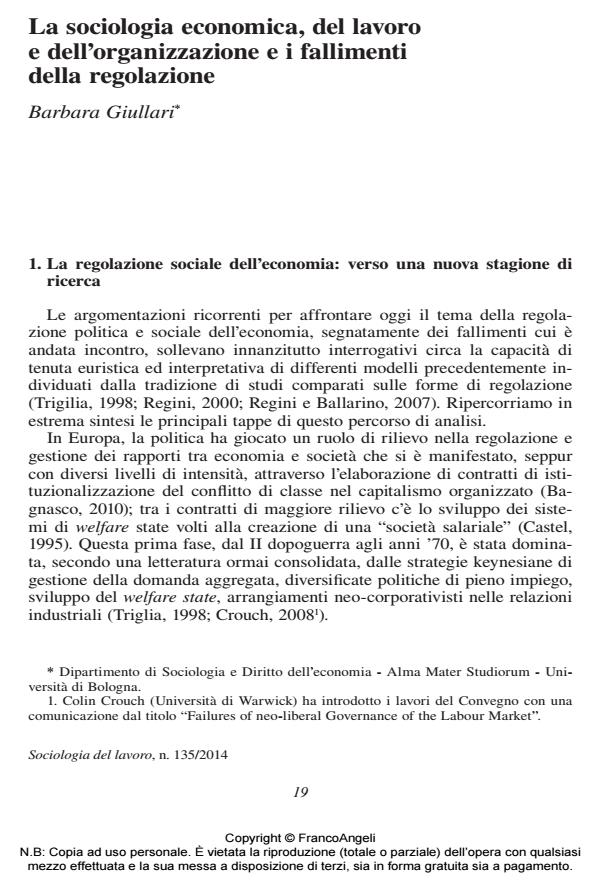The economic sociology and failures of regulation
Journal title SOCIOLOGIA DEL LAVORO
Author/s Barbara Giullari
Publishing Year 2014 Issue 2014/135
Language Italian Pages 15 P. 19-33 File size 108 KB
DOI 10.3280/SL2014-135002
DOI is like a bar code for intellectual property: to have more infomation
click here
Below, you can see the article first page
If you want to buy this article in PDF format, you can do it, following the instructions to buy download credits

FrancoAngeli is member of Publishers International Linking Association, Inc (PILA), a not-for-profit association which run the CrossRef service enabling links to and from online scholarly content.
The paper presents the essays in the volume, preceded by a brief general premise. The first part deals with the "state of the art" of economic sociological interpretative framework on the topic of regulation, the main issues and the latest developments; at the same time it outlines the "fil rouge" of the volume. The crisis of contemporary capitalism is characterized by significant differences between countries and patterns – influenced by the institutional and cultural context to which they belong; at the same time, it is marked by the spread of common dynamics; so the trend towards differentiation and towards convergence coexist and intertwine. In this context, the essays in the volume analyze specific, local and sectorial failures of regulation in Italy, and the role played by the actors and levels, mechanisms and tools of regulation.
Keywords: Capitalism, regulation, actors, mechanisms, levels, economic sociology
Barbara Giullari, La sociologia economica, del lavoro e dell’organizzazione e i fallimenti della regolazione in "SOCIOLOGIA DEL LAVORO " 135/2014, pp 19-33, DOI: 10.3280/SL2014-135002